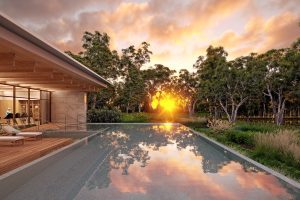Australian retirees with property in capital cities are downsizing and diving into sea and climbing into tree changes, says the Association of Superannuation Funds of Australia.
New analysis commissioned by the Association of Superannuation Funds of Australia (ASFA) from Bernard Salt AM uses the latest Census data to identify tree and sea change hotspots for Australian retirees.
Some locations already have large numbers of retirees and in others the proportion of retirees is starting to grow significantly.
In NSW, Forster-Tuncurry is a sea change hotspot. Around 32 per cent of the population are 65 plus and not in the labour force.
ASFA CEO Dr Martin Fahy said sea changers moving to Forster-Tuncurry could liberate significant capital, with the median house price $650,000 less than in Sydney.
“That is a lot of money that can be used to pay off a mortgage or fund a better retirement lifestyle,” he said.
In Victoria, Echuca-Moama is turning into a tree change hotspot. There the median house price is around $560,000 less than in Melbourne.
In the other states the amount of capital that can be liberated is much less, given lower median house prices in the capital cities concerned.
Mr Salt said tree and sea changers were more interested in new and improved recreational lifestyles.
In Queensland a shift from Brisbane to Hervey Bay can free up about $220,000 based on median house prices. Around 24 per cent of the population of Hervey Bay is aged more than 65 and not in the labour force.
South Australia has its own retiree hotspot in Victor Harbour, with 34 per cent of the population aged more than 65 and retired. A shift from Adelaide to Victor Harbour-Goolwa can liberate $180,000.
For most individuals the family home and superannuation form most of their financial assets when they retire. Both are crucial to the standard of living of individuals in retirement. An increasing number of retirees are retiring with some level of mortgage debt.
Others can be asset rich but cash poor with a large part of their wealth in the family home. Many retirees are also seeking a better and less stressful lifestyle in retirement.
Reverse mortgages have not proved popular in Australia nor have shared equity schemes.
Mr Salt said baby boomers would make retirement fashionable, but would rely on the goodwill, skills, taxes and labour of Millennials and Generation X to support their own retirement for another 25 years.

























Add Comment